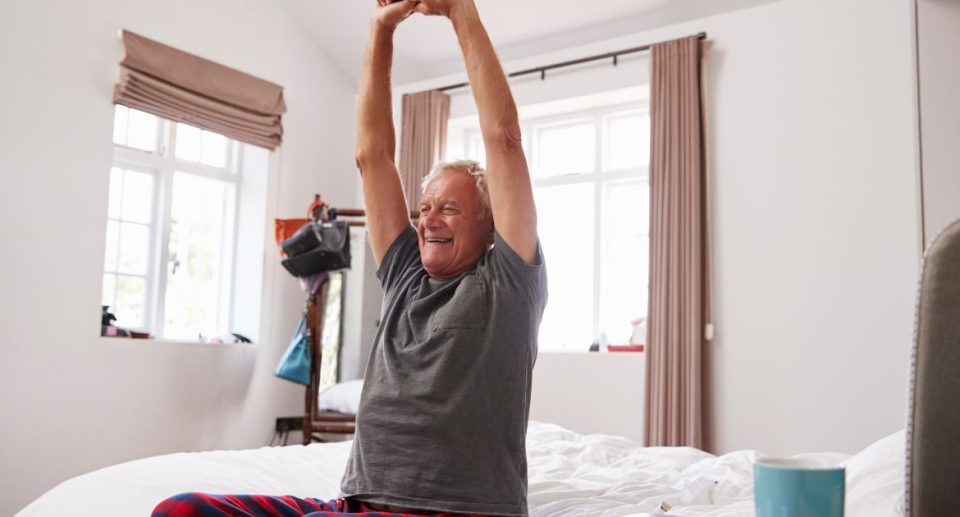How Can Seniors Create a Fulfilling and Purposeful Daily Routine?

As we age, maintaining a sense of purpose and fulfillment becomes increasingly important. A well-structured daily routine can provide seniors with the stability, engagement, and satisfaction necessary to lead a meaningful life. Here, we’ll explore practical strategies for creating a fulfilling and purposeful daily routine.
Understanding the Importance of Routine for Seniors
Having a daily routine offers several benefits, including:
- Improved Mental Health: Structure can reduce anxiety and stress, providing a sense of control and predictability.
- Enhanced Physical Health: Regular activities, including exercise and meal planning, support physical well-being.
- Increased Social Interaction: Routine can include social activities that combat loneliness and promote connections.
- Cognitive Stimulation: Engaging in varied tasks keeps the mind sharp and can prevent cognitive decline.
Steps to Create a Fulfilling Daily Routine
1. Assess Your Interests and Priorities
Begin by evaluating your interests, hobbies, and priorities. Consider activities that bring you joy, whether it’s gardening, reading, volunteering, or spending time with family. Make a list of these activities to incorporate them into your routine. Understanding what truly makes you happy is the first step toward creating a fulfilling routine.
2. Set Realistic Goals

Setting achievable goals gives you something to strive for and a sense of accomplishment. Goals can be as simple as walking for 30 minutes daily, learning a new skill, or reconnecting with old friends. Ensure your goals are realistic and suited to your physical and mental capabilities. Break larger goals into smaller, manageable tasks to avoid feeling overwhelmed.
3. Establish a Morning Ritual

Starting the day with a consistent morning ritual can set a positive tone for the rest of the day. This could include:
- Gentle Exercise: Stretching, yoga, or a morning walk to wake up your body.
- Healthy Breakfast: A nutritious meal to fuel your day.
- Mindfulness Practice: Meditation, deep breathing, or journaling to clear your mind and set intentions.
Creating a morning ritual that you look forward to can provide motivation and a sense of stability. Consider incorporating elements that you find personally rewarding and uplifting.
4. Incorporate Physical Activity

Regular physical activity is crucial for maintaining health and vitality. Aim for at least 30 minutes of moderate exercise most days of the week. Activities can include:
- Walking: A low-impact exercise that can be done indoors or outdoors.
- Swimming: Gentle on the joints and excellent for cardiovascular health.
- Strength Training: Using light weights or resistance bands to maintain muscle mass and bone density.
- Dance or Tai Chi: Fun ways to improve balance and coordination.
Physical activity not only improves physical health but also boosts mood and energy levels. Find activities that you enjoy and mix them up to keep things interesting.
5. Plan Nutritious Meals

Proper nutrition is vital for seniors. Plan your meals to include a variety of fruits, vegetables, lean proteins, and whole grains. Consider the following tips:
- Meal Prep: Prepare meals in advance to ensure you have healthy options readily available.
- Stay Hydrated: Drink plenty of water throughout the day.
- Mindful Eating: Eat slowly and savor your food, paying attention to hunger and fullness cues.
Eating well-balanced meals can improve overall health and well-being. Try new recipes or cook with friends and family to make mealtime enjoyable.
6. Schedule Social Activities

Social interaction is essential for emotional well-being. Make time to connect with others through:
- Family and Friends: Regular phone calls, video chats, or in-person visits.
- Community Events: Participate in local clubs, classes, or volunteer opportunities.
- Online Communities: Join online groups or forums related to your interests.
Staying socially active can reduce feelings of loneliness and depression. Engage in activities that allow you to meet new people and build relationships.
7. Engage in Cognitive Activities

Keeping your mind active can prevent cognitive decline. Include activities that challenge your brain, such as:
- Reading: Books, newspapers, or magazines on topics that interest you.
- Puzzles and Games: Crosswords, Sudoku, or board games.
- Learning: Take up a new hobby, learn a language, or attend a class.
Cognitive activities stimulate the brain and can provide a sense of achievement. Choose activities that you find mentally stimulating and enjoyable.
8. Allocate Time for Relaxation

Rest is essential for overall well-being. Incorporate relaxation techniques into your routine:
- Meditation: Spend a few minutes each day meditating to reduce stress.
- Listening to Music: Enjoy your favorite tunes to lift your spirits.
- Nature Walks: Spend time outdoors to rejuvenate your mind and body.
Relaxation helps to recharge your energy and improve your mood. Find methods of relaxation that suit your lifestyle and preferences.
9. Maintain a Sleep Schedule

Quality sleep is crucial for health and energy levels. Establish a consistent sleep schedule by:
- Going to Bed and Waking Up at the Same Time: Even on weekends.
- Creating a Calming Bedtime Routine: Reading, listening to soothing music, or taking a warm bath.
- Ensuring a Comfortable Sleep Environment: Keep your bedroom cool, dark, and quiet.
Adequate sleep is essential for physical and mental health. Develop habits that promote good sleep hygiene.
10. Reflect and Adjust
Periodically review your routine and make adjustments as needed. Reflect on what’s working and what isn’t, and be flexible in making changes. Your routine should evolve with your needs and interests.
Adapting your routine as circumstances change ensures that it remains relevant and fulfilling. Don’t be afraid to try new things and tweak your schedule to keep it fresh and engaging.
Sample Daily Routine for Seniors
Here’s a sample daily routine to inspire you:
- 7:00 AM: Wake up and stretch.
- 7:30 AM: Healthy breakfast and morning coffee.
- 8:00 AM: Morning walk or light exercise.
- 9:00 AM: Personal care and hygiene.
- 10:00 AM: Engage in a hobby or cognitive activity (reading, puzzles).
- 12:00 PM: Lunch with a friend or family member.
- 1:00 PM: Afternoon nap or relaxation time.
- 2:00 PM: Volunteer work or community involvement.
- 4:00 PM: Leisure activity (gardening, crafting).
- 6:00 PM: Dinner.
- 7:00 PM: Social time (phone call, video chat).
- 8:00 PM: Evening relaxation (music, TV).
- 9:00 PM: Prepare for bed (reading, meditation).
- 10:00 PM: Sleep.
Creating a fulfilling and purposeful daily routine is a powerful way for seniors to enhance their quality of life. By prioritizing physical activity, social interaction, cognitive engagement, and relaxation, seniors can enjoy their golden years with joy and satisfaction. Remember, the key is to tailor your routine to your unique preferences and needs, ensuring it remains enjoyable and sustainable.





